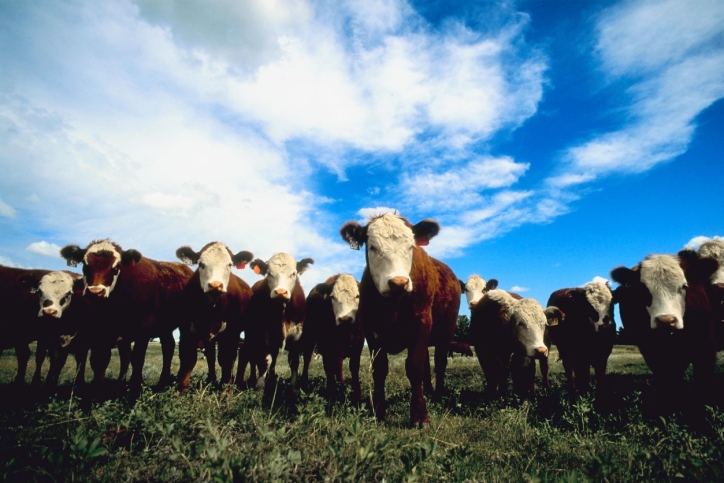
The USDA noted February’s lower prices received for broilers, cattle, hogs and lettuce offset higher prices for eggs, tomatoes, oranges and hay. Prices paid by farmers in the month remained unchanged at 109, two points lower compared with December 2014.
According to a report earlier this week, hedge funds are taking long positions on some ag commodities and the spread is the largest since March of 2014. Bets on beef and hogs, however, remain tilted slightly to a bearish position.
The price farmers received for livestock is about 9.3% higher than it was a year ago and the price for meat animals is 5% higher. The February hog price is down $7.00 per hundredweight since December, and down $15.10 compared with February 2014. Beef prices are up $15 per hundredweight compared with the February 2014 price and down $5 compared with December 2014.
ALSO READ: States Where the Middle Class Is Dying
Both corn and wheat prices remain significantly lower than they were a year ago, with year-over-year all-wheat prices down $0.61 a bushel at $5.89 and feed corn down $0.56 at $3.79 a bushel. Dry weather in the northern and central plains have pushed prices up recently however, from lows posted early in March.
Dairy prices are down 4.5% month-over-month and down 32% year-over-year. Market egg prices rose $0.34 per dozen compared with January prices to $1.41 a dozen. A dozen eggs costs 18 cents more than it did in February 2014, a 14.6% increase.
The prices farmers paid for feeder pigs fell $25 to $175 per hundredweight in February. Feeder cattle prices fell $12 per hundredweight to $219 in February.
Here is how some agriculture-related exchange traded funds were trading Monday:
The Market Vectors Agribusiness ETF (NYSEMKT: MOO) traded up 1.1%, at $54.16 in a 52-week range of $49.21 to $56.32.
The PowerShares DB Agriculture fund (NYSEMKT: DBA) traded flat at $22.32, in a 52-week range of $22.00 to $29.41.
ALSO READ: The Most Iconic Job in Each State
Take Charge of Your Retirement In Just A Few Minutes (Sponsor)
Retirement planning doesn’t have to feel overwhelming. The key is finding expert guidance—and SmartAsset’s simple quiz makes it easier than ever for you to connect with a vetted financial advisor.
Here’s how it works:
- Answer a Few Simple Questions. Tell us a bit about your goals and preferences—it only takes a few minutes!
- Get Matched with Vetted Advisors Our smart tool matches you with up to three pre-screened, vetted advisors who serve your area and are held to a fiduciary standard to act in your best interests. Click here to begin
- Choose Your Fit Review their profiles, schedule an introductory call (or meet in person), and select the advisor who feel is right for you.
Why wait? Start building the retirement you’ve always dreamed of. Click here to get started today!
Thank you for reading! Have some feedback for us?
Contact the 24/7 Wall St. editorial team.



